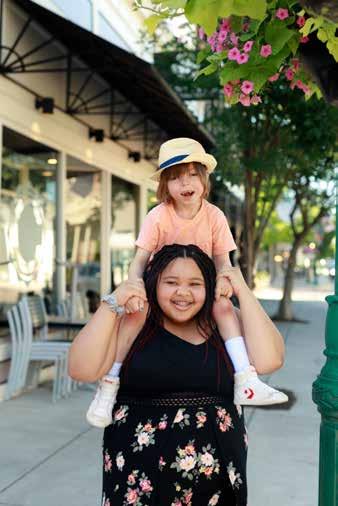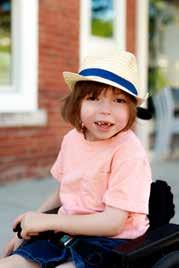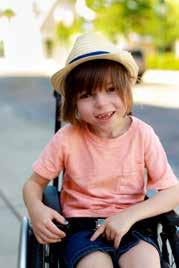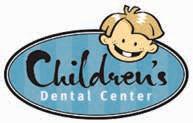
9 minute read
Meet the Ugoletti Family - Don, Tanya, Mattea & Kannon
When Tanya and Don Ugoletti had their second child eight years ago, no one suspected any problems at first. Their first child, Mattea, was born with no medical issues, and Tanya had a normal delivery with Kannon. But as Kannon got close to 6 months, Tanya noticed “that he just didn’t seem to be hitting the normal milestones.”
Tanya also noticed that Kannon had episodes where his arms or head would jerk slightly. She had the presence of mind to quickly take a video when the movements happened to occur on the day of his 6-month check-up. The pediatrician realized immediately that Kannon had infantile spasms, a form of epilepsy that looks innocent enough but is actually quite catastrophic. He was immediately started on daily injections of adrenocorticotropin (ACTH), a hormone made by the human pituitary gland. It’s very effective but comes at a cost of $25,000 a vial. He was treated for six weeks, and Tanya recalled that he suffered few side effects and had little weight gain. That was the good news. But Kannon’s challenges were only beginning.
Advertisement

Doctors discovered that Kannon had suffered a stroke in-utero. Testing revealed that he had inherited Factor V Leiden thrombophilia, a condition that increases the chance of abnormal blood clotting and raises the risk of stroke. About 70% of his right brain hemisphere was destroyed, leaving him with spastic triplegic cerebral palsy, meaning he now had spastic movements in three of his limbs — both legs and his left arm.
The epileptic seizures returned, too, though this time they were myoclonic and partial (focal) seizures, which could be controlled with an array of medications that don’t cost as much as a house. Between the ages of 2 and 5, Kannon’s seizures remained largely under control.

Living on the northeast side of Marion County, the Ugolettis are fortunate to be in a school system that allowed Kannon to attend full-day developmental pre-school. “I have lived here my whole life and we recently moved into the home I grew up in,” Tanya said. “We love the school district and the diversity it offers.”
Despite dealing with their son’s numerous medical issues, Tanya and Don have both continued to work. Don, who grew up in a small town near Terre Haute, works for a utility company. Tanya was a service coordinator for First Steps, Indiana’s early intervention program for children with developmental delays and disabilities. “As a parent with a disabled child, I could give my [client] families a unique perspective,” Tanya said. “I have been on both sides--receiving services and providing them!” (Tanya now works for SpeakIndy, a developmental preschool and therapy clinic). She especially credits Family Voices Indiana, a non-profit that provides information and support to special needs families, with motivating her to sign up for Indiana’s Medicaid Support Waiver. “I was very reluctant to apply due to some unfounded anxiety,” she said. “Once I actually got started, it was very easy.”

Her favorite memory is from a day when she had Kannon in the car, and out of the blue, he said, “I love you, mommy!” She was so surprised that she had to ask her mother, who was also in the car, if she had heard Kannon correctly. “He was probably close to five,” Tanya recalled, “and he did not repeat [those words] for probably another year, but it was beautiful!”

In 2019, when Kannon was 5 years old, his seizures became more frequent again, even with medication. He needed an additional way to control his seizures. The decision was made to try a vagus nerve stimulator (VNS), a small disc-like object that is implanted in the chest and sends electrical pulses to the brain via the vagus nerve. At first, the VNS was effective. With fewer seizures to contend with, Kannon’s mood improved, along with his cognitive function. “Mentally, you could see him processing faster, answering questions better, and his speech was more typical,” Tanya said.

The benefits were short-lived, however. After a little more than a year, Kannon’s partial seizures were more frequent than ever, and he also began to experience tonic/clonic seizures (commonly known as grand mal seizures) with muscle rigidity. The only bright spot was that the seizures were usually brief, lasting about 45 seconds, and he remained conscious and verbal throughout the episode, always knowing when it was over.

The Ugolettis found themselves at a crossroads. One option that remained for Kannon was a functional hemispherectomy, a rare neurosurgical procedure in which the skull is opened and the corpus callosum, the structure which connects the brain hemispheres, is severed. In Kannon’s case, the amygdala and hippocampus were removed as well, since they had been destroyed by the stroke.
Tanya, who has always been more aggressive about pursuing treatments for her son, wanted him to have the surgery as soon as possible. Don, who is more cautious by nature, was at first more skeptical of the surgery.
Kannon, who has always loved the water, just wanted a trip to the beach. He started lobbying for the trip in January of 2020, and by July, his parents made it happen. “The four of us went to Michigan on the only true family vacation we’ve ever taken, and it was wonderful,” Tanya said. “The whole trip was full of some really great memories.”

As Kannon’s cognitive decline and developmental setbacks became more obvious, Tanya called the Cleveland Clinic in March of 2021, and the family had a virtual appointment with Dr. Wyllie, an epileptologist, within three weeks.
By May, Kannon was scheduled for a video electroencephalography (EEG), which is done to evaluate whether the patient is a good candidate for neurosurgery. Video EEG not only shows where the seizures begin, but measures their frequency, severity, and duration. Of course, the patient’s seizure medications must be removed for the duration of the EEG. Fast-acting rescue medications such as Ativan are kept on hand if the seizures become life-threatening. In Kannon’s case, the seizures were constant for the entire day once his medications were paused. “It was very scary to watch, especially for my husband and daughter,” Tanya recalled. “I think it helped them realize how much was really going on inside Kannon’s brain that couldn’t be seen.”
On June 25, Kannon’s damaged right brain was disconnected from his healthy left brain in a four-hour surgery conducted by Dr. William Bingaman at Cleveland Clinic. “He did amazingly well,” Tanya said of her son. “There was no swelling, no facial droop, and no changes to his personality. He was able to talk right after waking up.” After three weeks of inpatient rehab, he was able to return home.

When school started again in late summer, it was immediately obvious that the surgery had made a difference in Kannon’s memory and cognitive ability. “His recognition of letters and numbers had improved, and he could understand and relay information better,” Tanya said. “He has had no seizures so far, and doctors will start weaning him off his remaining medications. We are so very proud of what a resilient kiddo he is!”
Before his surgery, Kannon tried playing baseball in the Challenger League. Recently, he tried ice hockey. He and his big sister both love music and movies. He gravitates toward nursery rhyme songs and cartoons, while Mattea, 14, is big into Lizzo and anime. Because of Kannon’s huge love of water, the whole family swims together as often as possible. Kannon and Don have father-son bonding time while fixing things around the house.
The most recent family project has been to design a mobility device that Kannon can use with only one arm. Kannon frequently uses a wheelchair, especially outside of the house, but he has also tried using a walker. “Since he has hemiplegia (no use of his left hand), walking with a walker is difficult,” Tanya explained. “He prefers to have his arm extended, but with typical walkers, his hand would have to be strapped in, which restricted his independence. My husband always says, ‘necessity is the father of invention, especially to a special needs parent.’ Nothing was working so we had to make our own hemi walker. After multiple iterations, we have now started the process to get it patented!”
Tanya and Don encourage other families to always advocate for their special needs child. “We have had to fire a doctor due to her staunch views on a surgery we had decided to pursue for Kannon,” Tanya said. “I know my son best, I am the leader of his team, and my opinion is valuable, even without a medical degree.”
The Ugolettis agree that balancing life between their two kids is always a top priority. “We want to give them as much opportunity for experiences as possible, but be mindful of Kannon’s sensory, medical and physical limitations. We also try our best to keep life as normal as possible when things get busy, but we have a very wonderful support system and village that are always near to help as needed.”

• providing tools to use in future appointments • establishing at-home dental hygiene routines • preparing you and your child to work through fear and anxiety
Call 317-842-8453 to book an appointment.
9885 E. 116th Street, Suite 100 | Fishers, IN 46037 babytoothcenter.com
most dental insurances and Medicaid accepted











